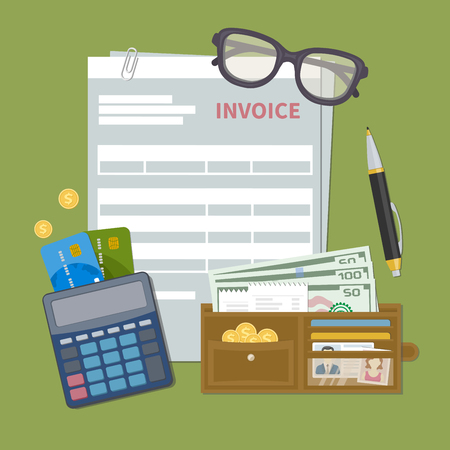Understanding Common Budgeting Errors
When it comes to managing personal finances, many UK households find themselves stumbling over similar budgeting mistakes time and again. It’s surprisingly easy to underestimate monthly bills—especially with fluctuating energy costs and council tax payments that can catch you off guard. Another widespread error is neglecting to track daily spending, which can quickly add up when you factor in regular trips to the supermarket or grabbing a cheeky takeaway after work. These slip-ups often happen because people rely on rough estimates rather than concrete figures, or they simply don’t have a realistic view of their actual outgoings. Without a clear record of expenses, even those with the best intentions can end up overspending before payday arrives. Recognising these common pitfalls is the first step for British households aiming to take control of their money and build more resilient financial habits.
2. Adopting a Realistic Mindset About Income and Expenses
One of the most frequent budgeting slip-ups among UK households is failing to be completely honest with themselves about their actual income and outgoings. Whether you’re paid monthly, receive irregular freelance payments, or juggle multiple part-time jobs, its crucial to base your budget on what truly comes in—after tax and National Insurance deductions.
Too often, people overestimate their disposable income by forgetting annual costs or underestimating everyday spending. To avoid this pitfall, it’s important to factor in all regular and irregular expenses. This includes not only rent or mortgage payments but also council tax (which varies by borough), utility bills (which can spike during winter), yearly subscriptions like TV licences or streaming services, and even those sneaky direct debits that renew automatically.
Common Income and Expense Categories for UK Households
| Income Sources | Fixed Outgoings | Variable Outgoings | Annual/Irregular Expenses |
|---|---|---|---|
| Salary (after tax/NI) | Rent/Mortgage | Groceries | Council Tax (if paid annually) |
| Freelance/Gig Payments | Council Tax (monthly) | Transport/Oyster Card | TV Licence |
| Pension/Benefits | Utilities (gas, electric, water) | Entertainment/Pub Nights | Car MOT & Insurance |
| Mobile Phone Contracts | Coffee Shops/Takeaways | Subscription Renewals (Amazon Prime, etc.) | |
| Broadband/Wi-Fi | Holiday Savings |
Top Tip: Go through your last three months’ bank statements and highlight every recurring payment. Don’t forget those annual subscriptions that slip through the net! By taking an honest look at both your earnings and your true outgoings—including “once a year” costs—you’ll avoid nasty surprises and have a clearer picture of what you can really afford each month.

3. Avoiding the Trap of Living Paycheque to Paycheque
Many UK households find themselves caught in the endless cycle of living paycheque to paycheque, making it tough to get ahead or save for the future. The cost of living crisis and unexpected expenses can quickly eat up your earnings, but with a few practical British-centric tips, you can start breaking free from this cycle.
Meal Planning with Supermarket Loyalty Schemes
A simple yet effective way to cut costs is meal planning. By creating a weekly meal plan based on supermarket offers and loyalty schemes—such as Tesco Clubcard Prices or Sainsbury’s Nectar points—you can save money while still enjoying varied meals. Make use of apps and weekly flyers to spot the best deals, stock up on essentials when prices are low, and reduce food waste by only buying what you need.
Building an Emergency Savings Buffer
Even if you’re only able to put aside a small amount each month, building an emergency fund is crucial. Aim to save at least £10-£20 every payday in a separate savings account—many UK banks offer easy-access accounts with no minimum balance. Having this buffer helps prevent turning to credit cards or payday loans when unexpected bills pop up, giving you more financial breathing room.
Make Use of Budgeting Apps and Community Resources
Take advantage of British budgeting tools like Money Dashboard or Emma, which sync with your bank accounts and help you track spending patterns. Also, don’t overlook local community resources: many councils and charities offer free debt advice or workshops on managing money effectively. The more support and information you have, the easier it is to stay out of the paycheque-to-paycheque rut.
By embracing these practical steps rooted in everyday UK life, you’ll not only gain better control over your finances but also build habits that safeguard your household against future financial stress.
4. Dealing with Unexpected Costs the UK Way
Life in the UK, as anywhere, can throw unexpected expenses your way—be it a surprise boiler breakdown, an urgent car repair, or an unplanned family event. Many households find these situations derail their budgeting efforts. However, British families have developed practical strategies for handling these financial curveballs while still keeping their budgets intact.
Embracing Charity Shops and Pre-Loved Goods
One uniquely British solution is to make the most of charity shops and pre-loved markets. Whether you need replacement school uniforms, kitchenware, or even furniture, these stores offer quality items at a fraction of high-street prices. Not only does this approach save money, but it also supports local charities and encourages sustainable consumption—a win-win for your wallet and community.
Setting Up a Rainy-Day Fund
The concept of a “rainy-day fund” is ingrained in UK money management culture. Setting aside even a small amount each month into a dedicated savings account can build a buffer against life’s surprises. This habit helps households avoid dipping into credit cards or taking out high-interest loans when unexpected bills arise.
Quick Comparison: Strategies for Managing Surprise Expenses
| Strategy | Typical Cost Savings | How It Helps |
|---|---|---|
| Shopping at Charity Shops | 30%-70% off retail prices | Reduces upfront costs for essentials; supports local causes |
| Rainy-Day Fund | Varies (based on savings) | Cushions against emergencies; prevents debt reliance |
| Comparing Utility Providers | £50-£300/year | Lowers recurring bills; frees up budget for surprises |
| Meal Planning & Batch Cooking | Up to £20/week | Saves on last-minute takeaways during busy or stressful periods |
Tapping into Community Resources
If you’re caught short, don’t overlook local councils, credit unions, and hardship grants that can provide short-term relief. These options are often more affordable than commercial loans and can give you breathing space while you rebalance your finances.
Everyday Tips for Staying Ahead of Surprises:
- Set up automatic monthly transfers to your rainy-day fund—even £10 a month makes a difference over time.
- Check local Facebook groups or apps like Olio and Freecycle for free or low-cost goods.
- Regularly review your direct debits and subscriptions to free up extra cash each month.
- If you receive unexpected windfalls (like tax refunds), allocate part to your emergency savings instead of splurging.
By adopting these tried-and-tested UK strategies, you’ll be better equipped to tackle surprise expenses without throwing your whole budget off course—and may even discover some new favourite places to shop along the way!
5. Making Use of UK Tools and Resources
One of the most effective ways to avoid common budgeting mistakes is to take advantage of the various tools and resources available right here in the UK. Modern technology and local support services have made managing money easier than ever, whether you’re a student in Manchester or a family living in rural Wales.
British Budgeting Apps
Start by exploring some popular UK-based budgeting apps designed to help keep your finances in check. Money Dashboard and Emma are two favourites among Brits, allowing you to view all your accounts in one place, track spending habits, and set budgets according to your needs. These apps integrate with most major UK banks, sending handy notifications if you’re close to overspending. For those new to digital budgeting, Snoop is another user-friendly app that not only tracks your expenses but also finds ways to save on regular bills.
Community Money Advice Services
If you prefer a more personal touch, plenty of community organisations offer free advice and workshops on managing money. Citizens Advice branches across the UK provide confidential, independent guidance on everything from debt management to budgeting tips. Many areas also have local initiatives such as Money Advice Service drop-ins or charity-run workshops where you can learn practical skills from experienced advisers—often over a cuppa!
Government Tools and Support
The UK government offers several online tools tailored for individuals and families looking to streamline their finances. The official MoneyHelper website combines the services of Money Advice Service, Pension Wise, and The Pensions Advisory Service, providing calculators for household budgets, debt repayment plans, and savings goals. There’s also direct support for those facing financial hardship through schemes like Universal Credit budgeting advances or council-run discretionary funds.
A Local Approach for Lasting Results
No matter your situation, making use of these uniquely British tools can help turn good intentions into real savings. By blending practical tech solutions with community wisdom and government support, UK households are well-equipped to overcome common budgeting hurdles and enjoy greater peace of mind.
6. Learning from Real UK Households
When it comes to managing money and overcoming common budgeting mistakes, there’s nothing more powerful than hearing from people who’ve been there and done that. Across the UK, families and individuals have found creative ways to stretch their pounds further and keep their finances on track—even when times get tough.
From Overspending to Smart Saving: The Jones Family in Manchester
The Jones family used to find themselves living payday to payday, often overspending on takeaways and impulse buys at the supermarket. By switching to meal planning and using discount supermarkets like Aldi and Lidl, they cut their monthly food bill by over £100. Their tip? “Stick to your shopping list and never shop when you’re hungry!”
Breaking the Credit Card Cycle: Sarah’s Story in Bristol
Sarah, a young professional in Bristol, fell into the trap of relying on credit cards for everyday expenses. After realising how much interest she was paying, she started using budgeting apps like Monzo to track her spending. Within a year, she paid off her debt and now puts aside a small amount each month into an emergency fund. Her advice is simple: “Face your numbers head-on; it’s scary at first, but empowering.”
Pooling Resources: The Shared Flat Approach in London
Living in one of the UK’s most expensive cities, a group of flatmates in London tackled rising utility costs by setting up a communal kitty for bills and shopping in bulk at local markets. They also switched providers regularly to make use of new customer deals. They say communication is key: “We sit down once a month over tea to go through our budget together.”
Key Takeaway
These stories show that no matter where you live or what your financial situation looks like, practical steps—like planning ahead, tracking spending, and working together—can help overcome common budgeting blunders. Learn from fellow Brits who’ve turned things around and remember: with patience and persistence, better money habits are within reach.
7. Building Better Habits for Long-Term Success
Establishing sustainable budgeting habits is the key to lasting financial wellbeing, and UK households have shown that small, consistent actions can make a significant difference over time. Here are some practical steps you can take to ensure your budgeting routine sticks—and helps you reach your savings goals.
Start with Simple, Achievable Goals
Begin by setting realistic targets, such as saving £20 a week or reducing your monthly takeaway spend by half. These manageable goals help build confidence and create a sense of achievement, motivating you to keep going. Remember, it’s about progress, not perfection—every little bit counts.
Create Visual Reminders
Use tools like budget trackers or even just a sticky note on the fridge to remind you of your goals. Many Brits find it helpful to see their progress; consider using a spreadsheet or one of the many free UK-based budgeting apps to monitor your spending and savings in real time.
Automate Where Possible
Set up automatic transfers into a separate savings account right after payday. This “pay yourself first” approach is widely adopted across the UK and takes away the temptation to spend what you intended to save.
Embrace Everyday Savings Habits
Look for daily opportunities to cut back—whether it’s bringing your own lunch to work, switching supermarket brands, or taking advantage of loyalty schemes at major UK retailers. Over time, these small changes add up and become part of your routine without feeling restrictive.
Review and Adjust Regularly
At the end of each month, review your budget and see what worked well or where you slipped up. Life in the UK can be unpredictable—unexpected train strikes or energy bill hikes happen—so don’t be afraid to tweak your plan as needed.
Celebrate Your Wins
No matter how small, celebrate reaching your milestones. Treat yourself with something modest—a coffee from your favourite café or a night in with friends—to stay motivated without derailing your progress.
By focusing on practical actions and achievable goals that fit everyday life in the UK, you’ll find that building better financial habits is not only possible but also rewarding in the long run. Stick with it, stay flexible, and remember: every pound saved brings you closer to financial peace of mind.


